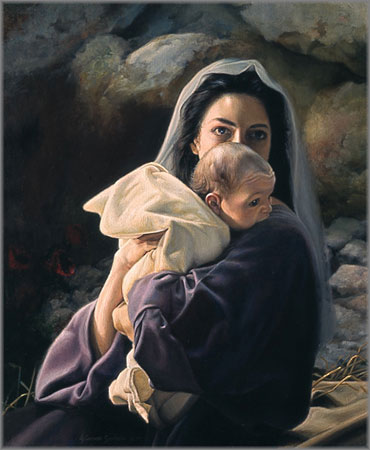
Betraying God is like sleeping on a volcano
Remember when someone you loved broke your heart–maybe in elementary school, high school, college, or as an adult? All of us have felt the agony of betrayal. Did you know God can relate? Every time one of His own rebels, God experiences heartbreak and righteous jealousy.
Not the paranoia, distrust, unhealthy smothering and possessiveness we observe in sick human relationships, but an insistence that we reserve our highest devotion exclusively for Him.
How do I know? Because God reveals it in a love story in His Love Letter to you–the Bible.
Imagine yourself sitting at God's feet while He tells you a true story about one of His most devoted servants. His name was Hosea and he was a gifted preacher living In Israel when almost all God's people loved Baal more than they loved God. Baal was the Canaanite god of fertility and their pagan neighbors convinced them that their prosperity–crops, herds, water, living children, all they needed to thrive–resulted from pleasing Baal. So the Israelites worshipped Baal too, wounding God deeply.
For hundreds of years, God sent preachers to warn the Israelites that betraying God is like sleeping on a volcano, but they closed their ears and hearts. So God implemented a teaching tool stronger than words–an object lesson. God asked Hosea to become an ongoing living metaphor–to use his own life to illustrate God's righteous burning jealousy. He asked the town preacher to marry a prostitute named Gomer. "Go, marry a promiscuous woman and have children with her, for like an adulterous wife this land is guilty of unfaithfulness to the Lord." In the marriage, Hosea represented God and Gomer represented the unfaithful Israelites. What would you do if God asked this of you? What would people think? How would your hopes, dreams, and expectations change?
Hosea trusted God enough to follow through on this big ask. Hosea even became the father of three children, though he couldn't be sure any of them were his. God named the three children Himself, names that screamed how He was feeling. Imagine Hosea or Gomer walking through the town holding these precious little ones' hands, and when people asked their names, they replied, "Oh, this one's name is "not loved" and this one's name is "not my people." The whole crazy situation must have caused everyone to ponder, "What's going on here? Why has God told Hosea to do this?" What do these names mean?" A powerful living metaphor often softens hearts when words fail.
How would God want you to respond to Hosea's story? Selah.
Sadly, the Israelites did not soften their hearts in response to Hosea's urgent plea. As a result they endured a seventy-year exile in brutal pagan lands where they lost the prosperity they cherished as well as the freedom to worship God openly.
God had warned them over and over.
Hosea's story sobers me. Breaking God's heart evokes consequences–tough love. Allender and Longman define tough love in their book Bold Love as God's courageous redemptive love for his beloved's highest good, even if its disruptive, unnerving, disturbing, or even painful in order to gain their attention, cause them to reevaluate harmful actions and attitudes, repent, and return to him. Just like with Israel, God tailor makes consequences to teach us too. But not out of wrath, out of love, even if it's tough love.
But thank goodness, God doesn't stop there.
If we analyze Hosea carefully, we observe a fascinating pattern. His sermons vacillate between parts that express God's jealousy and parts that promise ultimate grace for His own. For example in 1:7 we hear God's tender voice say," YET, I will show love to Judah; and I will save them–not by bow, sword or battle, or by horses or horsemen,
but I, the Lord their God, will save them."
My time in Hosea these last months has inflamed my devotion more fully to God as the supreme relationship in my life. I've learned so much more about God's tough love
and grace in my own life and in the lives of my loved ones.
My challenge: If you want to know God, go deep into His Love Letter for yourself.
Seems like now many women just pick out snippets, and then are surprised when they aren't truly nourished. Others are content to let experts digest the Bible for them. If they do, they'll find the satisfying nutrients will feed the experts, but they'll be left with the dregs.
Would you really read a Love Letter that way? Taste and see that the Lord is good–and His Love Letter transformative. Doesn't it make you hungry to savor it for yourself?
To personally experience Hosea, gather some friends, pick up a copy of Sue's new study guide scheduled for release Spring 2019, and dine together. Discovertogetherseries.com




